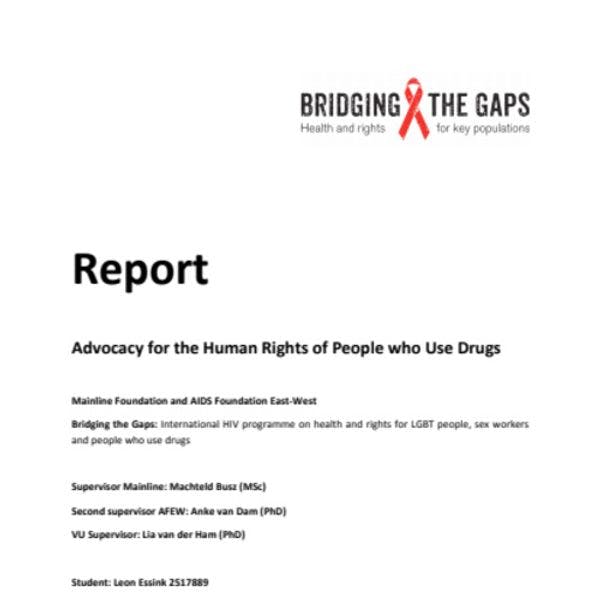Defensa de los derechos humanos de las personas que usan drogas
Este estudio examina cómo y en qué medida la defensa de los derechos humanos puede mejorar aún más la eficacia de las estrategias y los servicios de reducción de daños. Más información, en inglés, está disponible abajo.
Suscríbase a las Alertas mensuales del IDPC para recibir información sobre cuestiones relacionadas con políticas sobre drogas.
Contextual background
Protection of the human rights of People who Use Drugs (PUD) is important, not only because the rights of these people must be respected, protected and fulfilled, but also because it is an essential precondition to improve their health (Jürgens et al., 2010). Therefore it is important that harm reduction organisations advocate for the human rights of PUD (Beyrer et al., 2010). Organisations working on harm reduction, however, struggle in advocating for human rights, which is a major problem, according to experts such as Friedman et al. (2012). Studies and guidelines are written about how to advocate for the human rights of people who use drugs (Kaplan et al., 2009). However, it is unclear to what extent small organisations succeed to implement these guidelines in advocating practices and make use of a human rights framework. Therefore this study examines how and to what extent advocacy for human rights of People who Use Drugs is currently used and how human rights advocacy can further improve the effectiveness of harm reduction strategies and services.
Methods
Qualitative explorative methods were used, in addition a survey. Fourteen semi‐structured interviews were done Interviews where done with respondents from harm reduction organisations and national advocacy organisations based in eight countries: Ukraine, Tajikistan, Kyrgyzstan, Pakistan, Georgie, Nepal, Indonesia and Kenya. These interviews where complemented with three interviews with experts from international advocacy organisations in the field of drug use. The survey was handed out during a meeting including representatives of organisations based in the eight countries: sixteen surveys where obtained. The interviews where recorded and transcribed afterwards. The transcripts were analysed by using coding techniques in three different steps; open coding, axial coding and selective coding. The results of the analysis where when possible compared with the results of the survey.
Results
The results of this research show that all organisations included in the research do advocate for the human rights of PUD. However, some organisations are not aware of practising advocacy and most organisations do not plan advocacy activities as being advocacy activities. Organisations reckon face to face communication and organising workshops as the most effective ways of bringing the advocacy message. Most organisations see (social) media as important tools as well, but do not know how to make use of these tools properly. In addition, important differences were found between organisations. For example, the expertise level of advocacy differs between organisations. The main difference in expertise was found in the application of human rights theory, which is seen as an important tool for advocacy according to international advocacy experts. Most organisations have little knowledge of human rights. Next to this, most organisations have difficulties in documenting human rights violations.
Keep up-to-date with drug policy developments by subscribing to the IDPC Monthly Alert.
